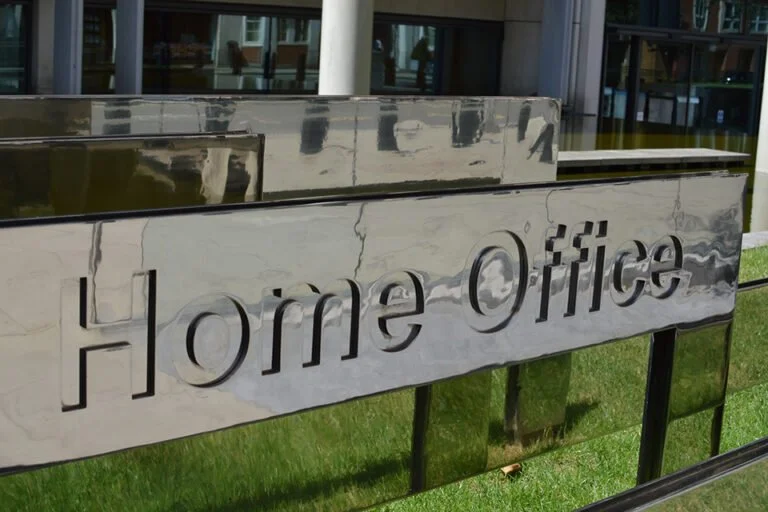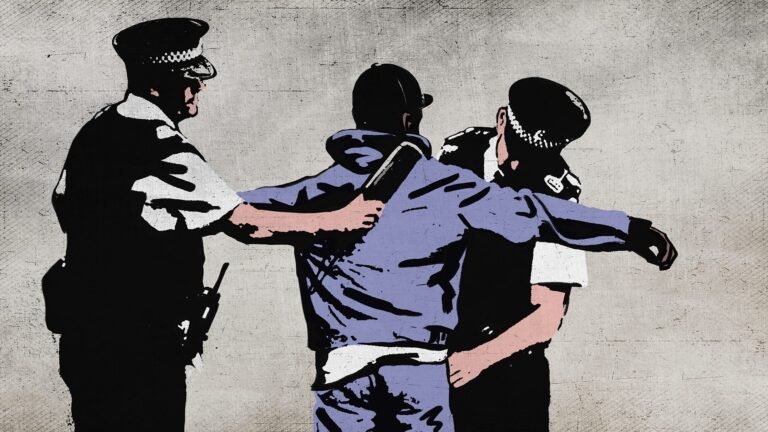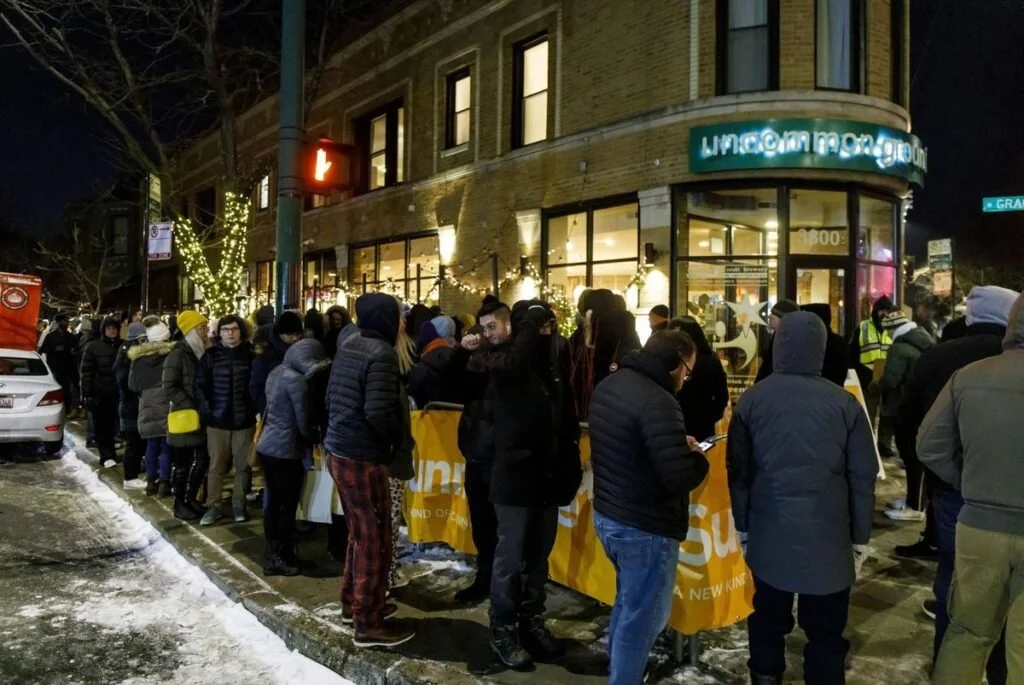Last Week In Weed Issue 44
Published November 8th 2021
In this week’s Last Week in Weed, the UK Home Office hiding stop and search figures, J.P. Morgan restrict trading in cannabis stocks and securities, and the US state of Illinois increases monthly sales year on year 64% yet still has not one black, Latino, or minority-owned dispensaries.
UK Home Office hiding ‘Stop and Search’ figures
Last week should have seen the UK Home Office release its annual ‘stop and search’ figures for the year ending April 2021. The government department has said that it will require additional time to “resolve data quality issues” due to a “record level” of data that has been gathered and has ultimately delayed its release until November 18th.
“The reason given for delaying the annual stop-and-search dataset implies that a record number of street searches took place in 2020/21. This holds a special irony when you consider that crime levels fell during this period primarily because of lockdown rules that mandated the nation to stay indoors. The government seems committed to helping the police avoid scrutiny over the effectiveness of their actions while increasing their stop-and-search powers.” – Habib Kadiri, research and policy manager at StopWatch
The previous year’s data was the highest in 6 years and showed massive disparities between the policing of ethnic, racial, and socio-economic groups. There were a total of 559,973 stop and search procedures conducted between March 2019 and April 2020. Police used drugs 63% and weapons 16% of the time to justify and excuse their detention and search of citizens. This resulted in just 1 in 4 (24%) leading to further action. 40 of the 43 English and Welsh police constabularies increased their usage of stop and search during this period.
The figures also revealed that black people were 8.9 times more likely to be targeted victims of stop and search by police. While for other non-white ethnic and racial groups are was 4.1 times. Regardless of what police spin doctors may have said this does represent a systemic bias and disproportional application of this too often abused and excessive policy.
This comes at the same time as the UK government is taking heat for two controversial and archaic pieces of legislation. The ‘Police, Crime, Sentencing and Courts Bill’ and the ‘Nationality and Borders Bill.’ The latter was recently found to be in violation of at least 10 domestic and international laws and heavily criticised by human rights campaigners.
The UK government is not just delaying these figures it has also refused to release the results of its own researching into this contentious border policy. The newly proposed legislation is described as “the cornerstone of the government’s New Plan for Immigration, delivering the most comprehensive reform in decades to fix the broken asylum system.” Yet its implications could be far-reaching and rather socially destructive.
There were more than 7,500 public responses to the publication of the proposed immigration legislation. Despite their objections and concerns, the government has refused to publish them. It has even gone as far as utilising Freedom of Information exemption rules to prevent disclosure stating that the “balance of the public interest lies in withholding the information.” Which does beg the question what exactly is it trying to hide?
Although it does concede in the same statement that “Disclosing the full reports would increase public awareness of the issues, accountability and transparency.” The passing of these two bills would greatly compound and increase the same problems that this data will likely highlight upon its release later this month.
“Transparency over the use and abuse of police powers is critical, yet this government has shown time and time again that it will do anything to evade scrutiny and undermine accountability.” – Emmanuelle Andrews Human Rights Group Liberty
Another issue to consider here is the controversial and continually increasing use of stop and search under Section 60 of the Criminal Justice and Public Order Act 1994. Using this power police do not need to have reasonable suspicion or probable cause. In the most recently available data (2019/2020) the use of section 60 increased 35% with just 4% resulting in further action or arrest. A hideous overreach and abuse of power.
It’s highly likely that the government’s desire to quietly pass its latest pernicious, authoritarian, and dehumanising legislation has motivated this delay in releasing the latest stop and search data. It would seem that its self-preservation and self-interests trump its obligations and commitment to the public that elected it.
So therefore I imagine that it will likely use this time to massage the numbers and further workshop its official response to the figures to placate an increasingly enraged and disenfranchised public. Either that or it will simply find another excuse in a few week’s time to continue to dither, delay, and deny disclosing this damaging dataset.
JP Morgan to restrict cannabis stocks and securities
America’s largest bank ‘JP Morgan Chase & co’ announced last week that it would no longer allow its brokerage clients to purchase cannabis-related stocks and securities as of November 8th, 2021. The banking giant has said that after the deadline it would no longer allow new purchases or short positions in cannabis-related businesses, but would allow clients to liquefy their existing positions.
The new restrictions apply to any company that has a “direct nexus to marijuana-related activities,” including ones that aren’t currently traded on major markets like the Nasdaq or New York Stock Exchange. An internal letter from the bank to its brokers seems to reveal the motivation for the decision.
It stated that “J.P. Morgan (JPMS) has introduced a framework that is designed to comply with U.S. money laundering laws and regulations by restricting certain activities in the securities of U.S. Marijuana-Related Businesses.”
This move comes after a similar one made in May by the global investment firm Credit Suisse Group. A decision motivated by losses the bank was making by acting as a ‘custodian’ for cannabis trades “That led to a significant selloff.”
“JPMorgan’s new policy is regressive and at odds with the majority of Americans, who want legal, regulated cannabis. What’s more, it’s self-defeating. The end of federal cannabis prohibition is within site [sight], and the industry is already growing rapidly. I imagine more than a few JPMorgan customers will take issue with being blocked from one of the hottest industries on the market today. JPMorgan is on the wrong side of history on this and will come to regret its decision.” – Steve Hawkins, CEO U.S. Cannabis Council
It is likely that both decisions are connected to the volatility created in the markets in February by Reddit and retail investors. The then record-breaking GW/Jazz sale forced them to turn their attention away from Gamestop and AMC to light up the US and Canadian cannabis stock markets.
The markets in Israel, Australia, and the US are continuing to grow and over £50million has already made its way onto the London Stock Exchange this year following the FCA’s volte-face in policy. So why is America’s largest bank restricting trading in the market now? Could it be related to the recent leak that there is a republican-led congressional cannabis legalisation bill, only time will tell.
Illinois increases monthly adult sales year on year 64% yet still has no black, Latino, or minority-owned dispensaries.
Our final story this week comes from the Midwestern US state of Illinois. New figures released last week show that its adult cannabis sales increased 64% in October compared to October the previous year. The same data revealed that adult-use sales have surpassed $1.12billion since the year began, an increase of 121% on its inaugural sales last year.
Sales to non-residents continue to represent a high and increasing percentage of overall sales, reaching a previous year’s high of 34.2%. Of its five neighbouring states, none are fully ‘legal’ and only one has decriminalised and created a medical access program. So this rather high percentage of sales to out-of-state residents is understandable and to be expected.
We also learned that ‘medical cannabis’ sales in Illinois have reduced by 3.5% in October compared to the previous year. A common trend in markets that allow adult sales after previously establishing a ‘medical’ industry. A wider choice of products, less red tape, and better knowledge seem to make the adult market too attractive for patients to not just get what they need there.
While these figures are encouraging as they represent increased state revenues, more social programs, and more people participating in the market – well, at least at the consumer level. The fact that two years after ‘legalising’ there isn’t a single black, Latino, or minority-owned cannabis business, rather changes their meaning.
Illinois has a slightly higher black population than the national average and is the third most populous city in Chicago. It’s racial demographic is 31.4% White, 29.9% Latino, 28.7% Black, and 6.9% Asian according to the 2020 US Census. Yet all businesses in the region and state are white-owned.
This same bias and prejudice are evident in the city’s arrest figures since the state ‘legalised’. In 2020, three times the number of black people were arrested for cannabis-related offenses than all other ethnic/racial groups combined.
According to a Freedom of Information Act request to the Chicago Police Department by the Chicago Tribune. Black people accounted for three-quarters of all arrests last year with a total of 2,311. Latinos were the next largest group with 506 arrests. While white people made up just 4% of arrests at 117.
The fact there still isn’t a single racial/ethnic minority-owned cannabis business in the state of Illinois highlights one of the glaring flaws in the current system. Black American’s make up around 13% of the national population yet they only make up 1.2 – 1.7% of cannabis company owners according to the 2021 Leafy Jobs Report
There are now 19 US states plus Washington D.C and Guam that have access to a ‘legal’ adult-use cannabis market. Yet under-representation remains a massive problem for ethnic and racial groups in the US including Indigenous, Pacific Islanders, Asian, Latino, and Hispanic Americans. Collectively their share of executive positions within cannabis companies reduced by more than half from 28% in 2019 down to 13.1% in 2021.
Although this brings it in line with the national average across the wider US economy it still represents a failure to capitalise on a golden opportunity to empower and enable those most harmed by cannabis prohibition. All of this without even mentioning class which seems to be an even more pervasive issue when it comes to participation in the modern cannabis industry.
Written By Simpa For The Simpa Life




